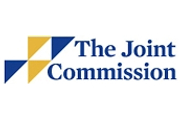The cultural and linguistic makeup of our nation has changed. Immigration is on the rise, and the number of Limited English Proficiency (LEP) individuals seeking health care services is increasing as a result. There is perhaps no other situation where clear communication is of the utmost importance than in a patient and health care provider scenario. To help ensure that Limited English Proficiency individuals receive the highest quality of care, in 2006 the Joint Commission released a detailed report regarding proposed national certification standards for patient communications in hospitals. After the release of this report, the Joint Commission began conducting detailed surveys of hospitals with regard to their current non-English language access and interpretation services for LEP patients. Those years of surveys and data compilation resulted in the Joint Commission releasing their 2010 “New and Revised Standards for Patient-Centered Communication.”
English Proficiency individuals receive the highest quality of care, in 2006 the Joint Commission released a detailed report regarding proposed national certification standards for patient communications in hospitals. After the release of this report, the Joint Commission began conducting detailed surveys of hospitals with regard to their current non-English language access and interpretation services for LEP patients. Those years of surveys and data compilation resulted in the Joint Commission releasing their 2010 “New and Revised Standards for Patient-Centered Communication.”
New Standards of Compliance Mean Better Health Outcomes
The new Joint Commission standards require hospitals to develop systems of support for LEP patients through providing qualified, screened, and properly trained interpreters in the patient’s own language. These standards cover interpreter qualifications, the rights of LEP patients to receive communication regarding their care in their preferred language, patient privacy and cultural respect, and the maintenance of detailed patient records. Unscheduled Joint Commission surveys are also conducted to evaluate how closely these new standards are being adhered to, and to monitor the quality of care LEP patients’ receive by ensuring language barriers are reduced or eliminated.
Interpreters Must Meet Stringent Requirements
Accurate medical interpreting is vital to the health of the patient, so using a highly qualified, fluent interpreter from a reputable interpreting service is necessary. With phone interpretation services, LEP patients can be connected to a professional interpreter almost instantly. There are situations when an in person interpreter is appropriate, and most interpreting services will offer this service with a couple of hours notice. Established in 2009, certification in medical interpreting is now available by the National Board of Certification for Medical Interpreters, (NBCMI). With over 15,000 professional medical interpreters in the United States, this milestone credential is a critical step in assurance of competency and compliance with JCAHO standards.
Vetting Medical Interpretation Service Providers
While there are many medical interpreter staffing agencies, there are some key factors for hospitals and other healthcare providers to consider when selecting the highest quality interpreters:
- How long has the medical interpreting service been in busines
- What types of interpreting do they specialize i
- What type of training is required of their medical interpreter
- How many languages are offered (needs to be greater than 100
- Are translation services (for written medical documents) also available
- Are testimonials readily available on their website
The need for all healthcare institutions to address the interpretation needs of the LEP community is now an undeniable reality, thanks in part to the JCAHO and their hard work. All patients deserve comprehensive and compassionate care, and clear communication is a major factor in ensuring favorable outcomes.
Affordable Language Services provides medical, legal, and corporate interpreting and translation services with over 200 languages offered, including American Sign Language.
Contact Us (513-745-0888) for help navigating through these new standards and requirements.
